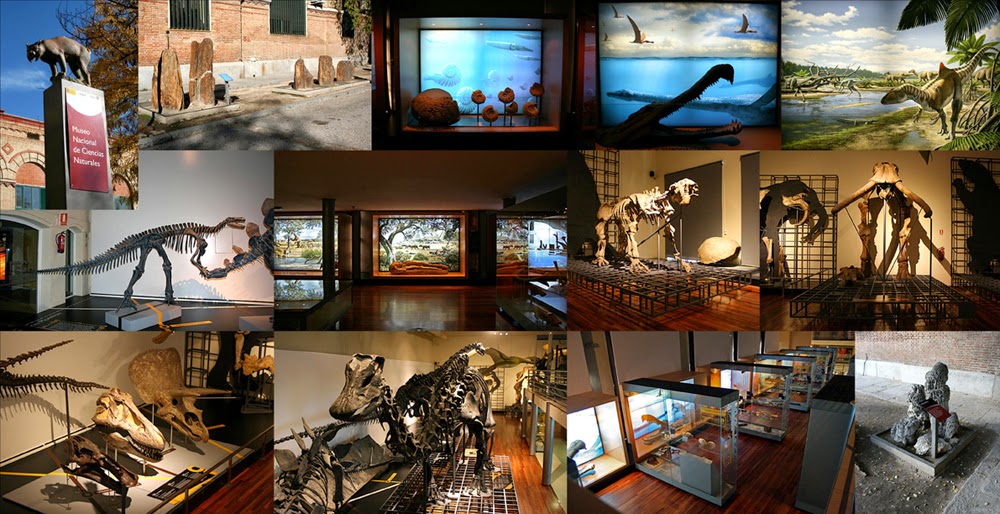 |
| Tyrranosaurus Rex |
As a Geotourist, perhaps I
was just too keen to get to my final destination but, at the Iguazú Falls, I
didn’t look for or see any information to guide me on my tour and I can’t
remember seeing any interpretative panels - it was just enough to experience
the sights, smells and sounds of this spectacular natural phenomenon for
myself.
My next experience of
Geotourism, in Spain, had another completely different character. Again, a
short city based break in Madrid didn’t provide too many opportunities to
explore the surrounding mountainous countryside but it was full of geological highlights.
 |
| Architecture and Sculpture in Madrid |
During my first walk around the old city centre, to see some of the city's cultural attractions, I soon noticed that granite can be seen everywhere in Madrid. Although the historic architecture is on a grand scale, it is often austere - due to the intractable nature of granite - but there are many fine details where other stones have been used. One place that I did really want to see for the architecture, as much as for the geology collection, was the Museo Geominero, set in the heart of the Instituto Geológico y Minero de España (IGME).
 |
| El Museo Geominero |
It comprises a main floor, above
which rise three levels of balconied galleries, topped with a spectacular
stained glass roof. There are over 5600 minerals and 10,000 fossils on display, together
with a relatively small collection of rocks.

| |
Simply presented in over 250
cabinets, the collection comprises specimens from all over Spain, as well as
those from the former Spanish colonies.
 |
| Geological sections in stained glass |
The real highlight for me was the stained glass borehole logs that you first see when you enter the museum. Recording exploration for potassium salts in Catalonia, the strata are reproduced to scale. Marl, limestone, sandstone, marl slate, salt, carnalite and silvinite are all represented.
 |
| The Natural History Museum |
A stone's throw away from El Museo Geominero is the Natural History Museum where there is a small but very impressive display of dinosaur and large mammal skeletons, as well as a comparatively small collection of rocks and minerals.